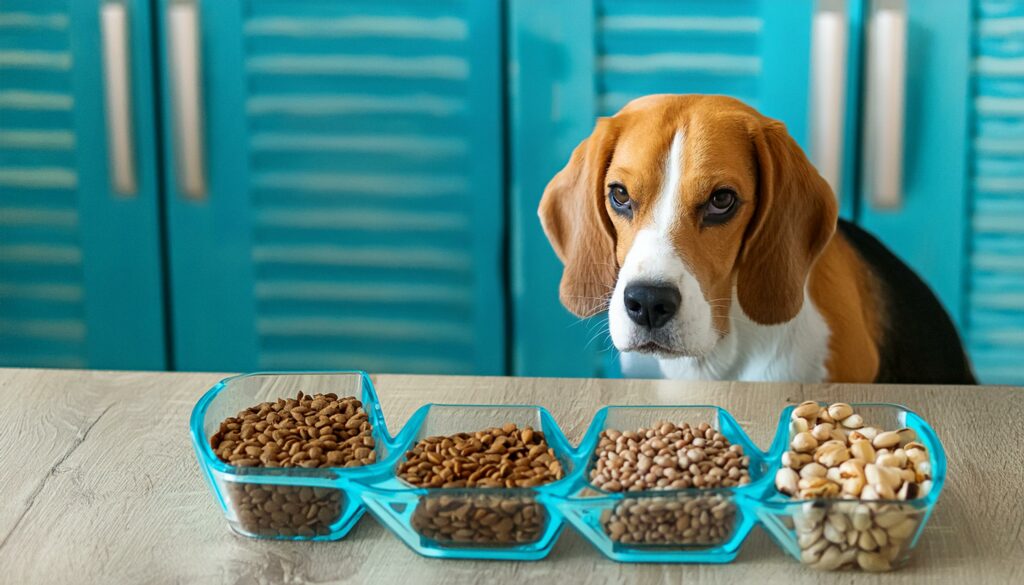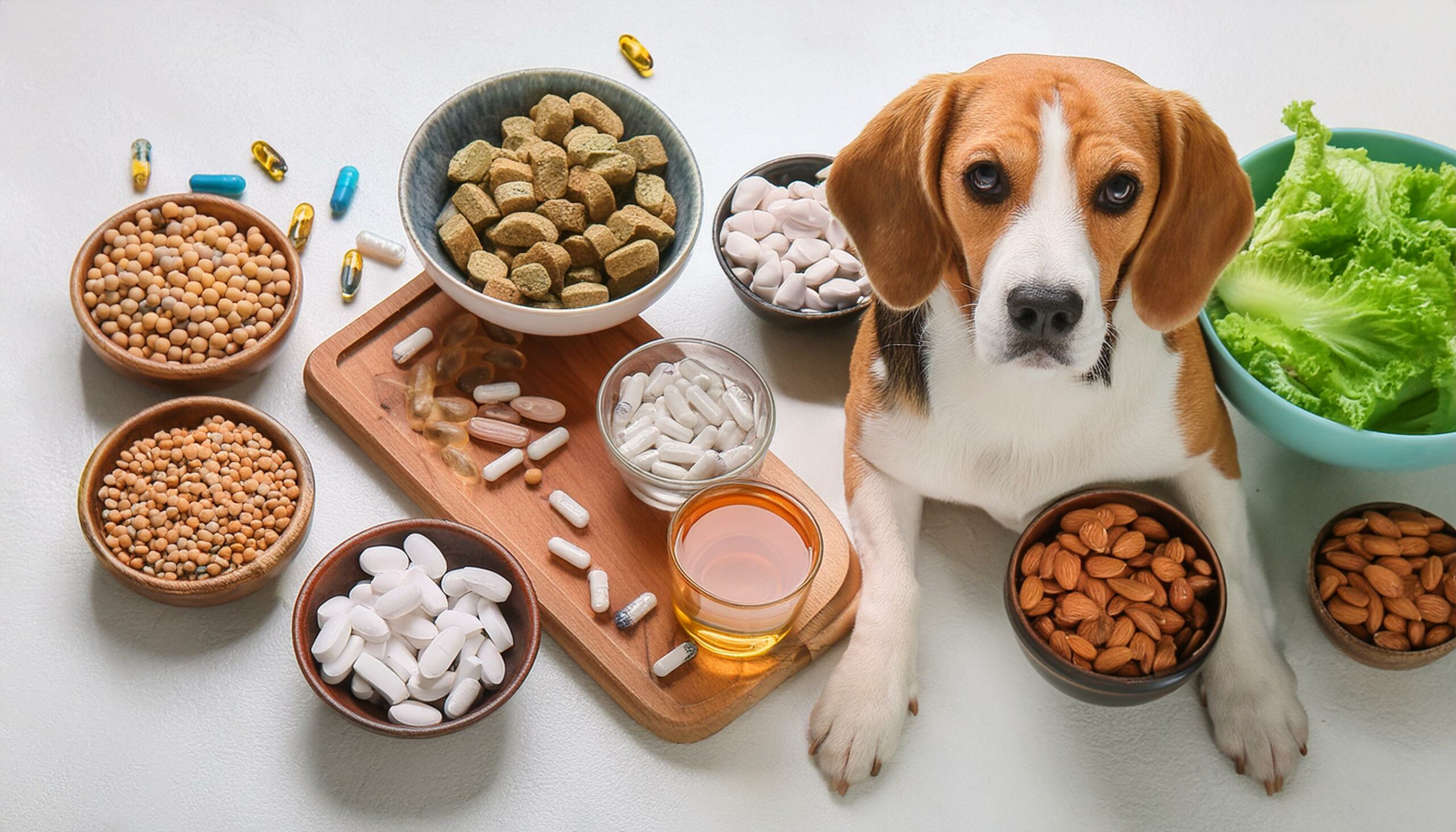Beagles, with their charming personality and loyal demeanor, are cherished members of countless households. Responsible pet ownership encompasses not only showering them with affection but also ensuring their dietary requirements are met. Recognizing which foods are detrimental to beagles is paramount for safeguarding their health and happiness.
Introduction to Beagles and Their Dietary Needs
Beagles, renowned for their friendly disposition and boundless energy, thrive on a balanced diet that sustains their vitality and overall well-being. Like humans, their dietary intake significantly influences their health trajectory, making it imperative to make informed choices about their nutrition.
Understanding Beagle’s Digestive System
A comprehension of the intricacies of a beagle’s digestive system is fundamental to discerning the potential hazards posed by certain foods. Beagles possess delicate stomachs, rendering them susceptible to digestive distress if exposed to inappropriate dietary elements. Their digestive physiology may not tolerate certain edibles that other canine breeds can ingest without repercussions.
Foods Toxic to Beagles

Chocolate
Chocolate, a delectable treat for humans, harbors theobromine, a compound that spells danger for dogs, including beagles. Even minute quantities of chocolate consumption can precipitate symptoms ranging from vomiting and diarrhea to accelerated breathing and, in severe cases, seizures and fatality.
Grapes and Raisins
Grapes and raisins can instigate kidney failure in beagles, although the exact toxic component remains elusive. Ingestion of grapes or raisins may incite manifestations such as vomiting, diarrhea, lethargy, and diminished urine output, necessitating prompt veterinary intervention.
Onions and Garlic
Onions and garlic, whether raw, cooked, or in powdered form, harbor substances that can impair a beagle’s red blood cells, leading to anemia. Indications of onion and garlic toxicity encompass weakness, gastrointestinal disturbances, and pallid mucous membranes, underscoring the peril they pose to beagle health.
Xylitol
Xylitol, prevalent in sugar-free gum, candies, and baked goods, poses a grave threat to beagles. Consumption of xylitol triggers an abrupt surge in insulin levels, culminating in hypoglycemia, seizures, and hepatic failure, underscoring the importance of shielding beagles from its ingestion.
Alcohol
Alcohol consumption, irrespective of the quantity, can exert deleterious effects on beagles, precipitating symptoms like gastrointestinal upset, impaired coordination, central nervous system depression, respiratory distress, tremors, and even coma.
Avocado
Avocado, containing persin, a fungicidal toxin, can induce vomiting and diarrhea in dogs, including beagles. While the avocado flesh itself may not be as deleterious, the pit and skin pose a choking hazard, warranting caution when beagles are in proximity to this fruit.
Harmful Table Scraps
Feeding beagles table scraps introduces the risk of exposing them to various harmful substances, including fatty meats, bones, and foods seasoned with garlic and onions. Discretion should be exercised to refrain from offering them scraps from human meals, which may harbor ingredients detrimental to beagle health.
Beagle-Safe Alternatives
Opting for wholesome, beagle-friendly treats and snacks, such as carrots, apples (seedless), blueberries, and plain, cooked meats like chicken and turkey, is advisable. These alternatives furnish essential nutrients sans the peril associated with toxic foods, promoting optimal health for your cherished companion.
The Importance of a Balanced Diet
The pivotal role of a balanced diet in nurturing the health and longevity of beagles cannot be overstated. Selecting premium-quality dog food tailored to meet their nutritional requisites and abstaining from overindulgence in treats or human fare is integral to preserving their well-being.
Common Signs of Food Poisoning in Beagles
Vigilance is imperative to detect signs of food poisoning in beagles, including vomiting, diarrhea, lethargy, abdominal discomfort, anorexia, and alterations in behavior. Should any of these symptoms manifest, immediate veterinary consultation is warranted to mitigate further complications.
Consulting a Veterinarian
When in doubt regarding the suitability of a particular food item for your beagle, consulting a veterinarian is prudent. Veterinarians can furnish personalized guidance contingent on your beagle’s age, weight, and prevailing health status, ensuring informed decisions about their dietary regimen.
Conclusion
In essence, awareness of the foods detrimental to beagles is pivotal for safeguarding their health and vitality. By eschewing toxic foods and embracing beagle-friendly alternatives, pet owners can forge a path towards a fulfilling and wholesome life for their beloved companions.
FAQs:
Can beagles eat bananas?
Yes, beagles can consume bananas in moderation as a nutritious snack rich in vitamins and minerals.
Is peanut butter safe for beagles?
Yes, plain, unsalted peanut butter devoid of xylitol is safe for beagles and can serve as a delectable treat when dispensed judiciously.
Can beagles eat cheese?
While beagles can tolerate small quantities of cheese, monitoring for potential lactose intolerance is advisable to prevent gastrointestinal upset.
What vegetables are safe for beagles?
Beagles can partake in an assortment of vegetables, including carrots, green beans, and sweet potatoes, which furnish vital nutrients without compromising their well-being.
Can beagles eat raw meat?
While certain raw meats may be permissible for dogs, the risk of bacterial contamination mandates caution, necessitating consultation with a veterinarian before incorporating raw meat into a beagle’s diet.
